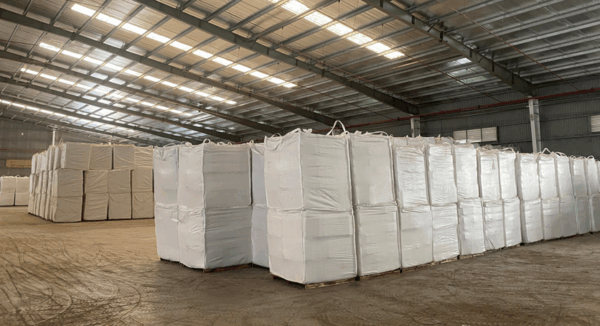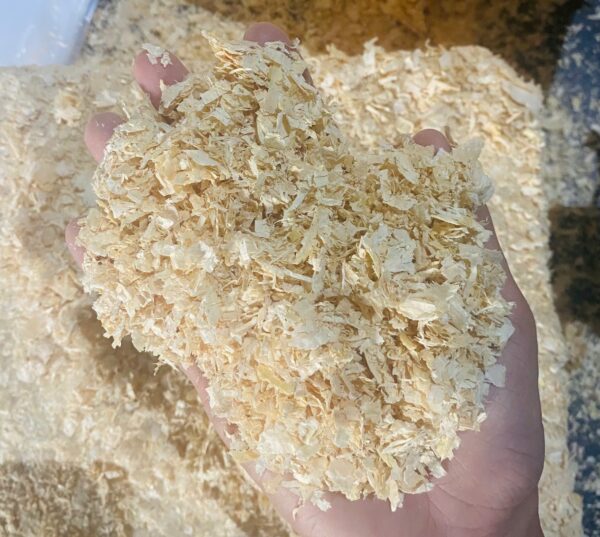Pine wood shavings are widely known for their use as animal bedding, but their potential extends beyond the barn. This natural byproduct can be a valuable addition to your gardening and farming practices, helping to enrich the soil, improve moisture retention, and even support organic and sustainable agriculture. If you’re looking to enhance the health of your soil in a cost-effective and eco-friendly way, pine wood shavings offer an excellent solution.
In this article, we’ll explore how to use pine wood shavings in your garden or farm, covering everything from the benefits they provide to the best practices for their application.
Why Use Pine Wood Shavings for Soil Enhancement?
Adding pine wood shavings to soil offers several advantages for both home gardeners and commercial farmers. This natural material, derived from processing pine wood, is lightweight, biodegradable, and rich in organic matter, making it ideal for improving soil structure and fertility. Below are some of the key benefits:
1. Improves Soil Structure
Soil texture plays a vital role in plant health. Looser, well-aerated soil allows roots to grow more easily and improves water and nutrient absorption. Pine wood shavings help break up compacted soil, creating a looser, more friable texture that supports healthy root development.
2. Enhances Moisture Retention
One of the biggest challenges in gardening and farming is ensuring that the soil retains enough moisture for plants without becoming waterlogged. Pine wood shavings act like a sponge, absorbing moisture and slowly releasing it back into the soil as needed. This not only keeps the soil consistently hydrated but also reduces the need for frequent watering.
3. Supports Organic Matter and Microbial Activity
Over time, pine wood shavings break down and decompose, adding valuable organic matter to the soil. This enriches the soil’s nutrient profile and encourages beneficial microbial activity. Microorganisms, such as fungi and bacteria, play an essential role in nutrient cycling and the breakdown of organic matter, ultimately making nutrients more available to plants.
4. Helps Control Weeds
When used as mulch, pine wood shavings can also suppress weed growth by blocking sunlight from reaching weed seeds. This reduces competition for nutrients and water, allowing your plants to thrive without interference from unwanted vegetation.
5. Eco-Friendly and Sustainable
Because pine wood shavings are a byproduct of the lumber industry, using them in your garden or farm helps reduce waste and promotes sustainability. Instead of ending up in landfills, these shavings can be put to good use in improving soil quality and supporting organic farming practices.
Best Ways to Use Pine Wood Shavings in the Garden and on the Farm
Now that we’ve covered the benefits, let’s discuss how you can incorporate pine wood shavings into your soil management routine. Whether you’re working with a small garden or a large farm, here are several ways to use pine shavings effectively:
1. As a Mulch
One of the most popular applications of pine wood shavings in gardens and farms is as mulch. When spread around plants, trees, or garden beds, the shavings help to:
- Retain moisture by reducing evaporation from the soil surface.
- Protect plant roots from temperature extremes, both in the heat of summer and during cold winter months.
- Suppress weed growth by creating a physical barrier that prevents light from reaching weed seeds.
- Gradually decompose, enriching the soil with organic matter.
To apply pine wood shavings as mulch, spread a layer 2-4 inches thick around the base of plants or trees, keeping it a few inches away from the stem or trunk to prevent rot. Replenish the mulch layer as needed throughout the growing season.

2. In Composting
If you’re looking to improve your compost pile, pine wood shavings can be a valuable addition. These shavings are considered “brown” materials, meaning they are rich in carbon and help balance the high nitrogen content of “green” materials like food scraps and grass clippings.
When adding pine wood shavings to your compost pile, be sure to mix them in with other compostable materials to promote even decomposition. Over time, the shavings will break down, contributing valuable organic matter to your finished compost, which can then be used to enrich the soil in your garden or on your farm.
3. As a Soil Amendment
Incorporating pine wood shavings directly into the soil can help improve its structure and fertility, particularly in heavy clay or sandy soils. For clay soils, the shavings help break up dense clumps, improving aeration and water penetration. In sandy soils, they help retain moisture and prevent nutrients from leaching away too quickly.
To amend soil with pine wood shavings, work a generous amount of the shavings into the top 6-12 inches of soil before planting. This will create a loose, well-draining medium that supports healthy plant growth.
4. In Raised Garden Beds
Pine wood shavings can also be used as a base layer in raised garden beds. By adding a layer of shavings to the bottom of the bed before filling it with soil, you create a moisture-absorbing layer that helps regulate water levels. This technique can be particularly beneficial in areas with poor drainage or in raised beds that tend to dry out quickly.
5. For Pathways and Erosion Control
On larger farms or in garden areas prone to erosion, pine wood shavings can be used to create pathways or to stabilize soil on slopes. The shavings help to reduce water runoff and protect the soil from erosion by slowing down the movement of water and creating a protective layer on the surface.
Potential Considerations When Using Pine Wood Shavings in Soil
While pine wood shavings offer numerous benefits, there are a few factors to consider before applying them to your soil:
1. Nitrogen Tie-Up
As pine wood shavings decompose, they can temporarily tie up nitrogen in the soil, making it less available to plants. To counteract this, consider adding a nitrogen-rich fertilizer or compost to the soil when applying fresh shavings. This will help balance the nitrogen levels and ensure that your plants receive the nutrients they need.
2. Acidity
Pine wood contains natural acids that can lower the pH of the soil over time. While this can be beneficial for acid-loving plants such as blueberries, azaleas, or rhododendrons, it may not be suitable for plants that prefer neutral or alkaline soils. If you’re using pine wood shavings regularly, it’s a good idea to test your soil’s pH periodically and adjust it as needed with lime or other amendments.

Conclusion
Pine wood shavings are a versatile and eco-friendly material that can be used to enhance soil in both gardens and farms. Their ability to improve soil structure, retain moisture, and add organic matter makes them an excellent choice for gardeners and farmers looking to support healthy plant growth and sustainable practices.
By using pine wood shavings as mulch, in compost, or as a soil amendment, you can reap the benefits of this natural byproduct while contributing to a more sustainable and productive growing environment. Keep in mind the potential considerations regarding nitrogen tie-up and soil acidity, and adjust your practices accordingly to ensure optimal results.
With the right approach, pine wood shavings can play a valuable role in promoting healthier soil and more productive gardens and farms.
Read more: https://vietnambestwood.com/general/pine-wood-shavings-in-chicken/
